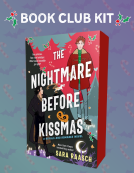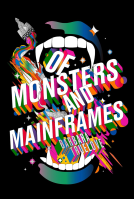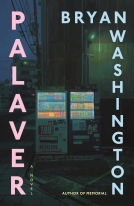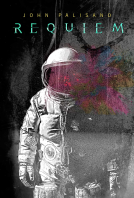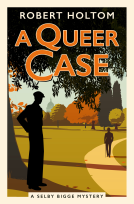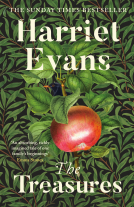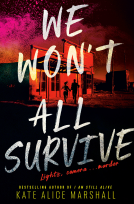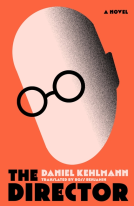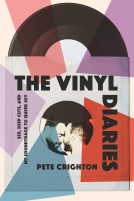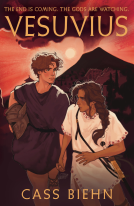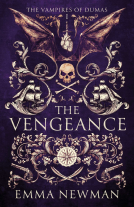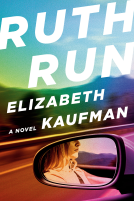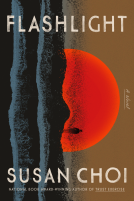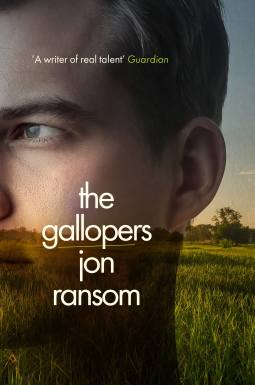
The Gallopers
by Jon Ransom
This title was previously available on NetGalley and is now archived.
Send NetGalley books directly to your Kindle or Kindle app
1
To read on a Kindle or Kindle app, please add kindle@netgalley.com as an approved email address to receive files in your Amazon account. Click here for step-by-step instructions.
2
Also find your Kindle email address within your Amazon account, and enter it here.
Pub Date Jan 25 2024 | Archive Date Jan 31 2024
Talking about this book? Use #TheGallopers #NetGalley. More hashtag tips!
Description
From one of the most acclaimed debut novelists of 2022 author of The Whale Tattoo, winner of the Polari Prize First Book award 2023, Jon's new book The Gallopers is a visceral and mesmerising novel of deceit, desire and unspeakable loss.
‘Ransom has written a hypnotic and even more mysterious second novel…This is a lust-drenched, ache-filled gay love triangle of sorts that gnarls into a sly emotional thriller. The Gallopers is a whispered howl of a novel’ Guardian
'It’s a book packed with explosive secrets and deception, but it’s the hard-to-express emotions and the longing for love that lends this poignant tale its momentum.' Daily Mail
‘One of the best novels to look out for in 2024’ Guardian
'Gritty and unsettling, Jon Ransom has crafted a story of discovery and loss, the circularity of life and the shockwaves which ripple out from the centre of tragedy’. Irish News
Three Men, One Secret
1953. Eli is nineteen years old and lives alongside a cursed field with his strange aunt Dreama. Six months before, his mother disappeared during the North Sea flood. Unsure of his place in the world and of the man he is becoming, Eli is ready to run.
Shane Wright is a man with plenty to hide. Caught in a complicated relationship with Eli, Shane is desperate to maintain the double life that he has created for himself. Then Jimmy Smart appears. Jimmy Smart, the mysterious showman who turns the gallopers at the fair. Under his watchful gaze, Eli discovers a world he knows nothing about with rules he cannot understand.
Three men bound together in a blistering story that spans 30 years, from 1953 into the 1980s and the AIDS epidemic.
A Note From the Publisher
Advance Praise
‘A powerful new voice of gay working-class life…This eloquent heart-felt debut pulls the reader right beside him ..a writer of real talent’. Guardian
'The Whale Tattoo is remarkable. A potent tale of grief, love and ultimately forgiveness’. The Spectator
‘A stunning achievement - one of the most impressive and assured debuts I’ve ever read’. Matt Cain
'Debut of the year 2022’. Guardian
‘A bold, brilliant and beautiful debut’. Suzannah Dunn
‘Books of the Year Pick’. Gays the Word Bookshop
‘If you only read one debut novel this year make it this one. The Whale Tattoo is a book of visceral, magnetic raw pulsating beauty. A mesmeric, gritty tour de force’. Attitude Magazine
Marketing Plan
Reviews in Guardian, Observer, Daily Mail, Mail on Sunday, Sunday Times, The Pink Paper, Gay Times, Diva Magazine, Attitude, G Scene, Spectator. Bloggers coverage on publication, Festival appearances throughout the year, radio and print interviews
Available Editions
| EDITION | Hardcover |
| ISBN | 9781739193027 |
| PRICE | £14.99 (GBP) |
| PAGES | 200 |
Available on NetGalley
Featured Reviews
I’m sad that I really struggled with this one, From the blurb, I thought I’d find it really moving, emotional and insightful,
It definitely had the potential to be those things.
I just really couldn’t get on with the writing style. It left me feeling frustrated and conscious that I was reading, rather than losing myself in the story.
I’m sure it will work for some, but sadly didn’t click with me.
 Ciaran S, Reviewer
Ciaran S, Reviewer
I’m not sure that the publisher’s blurb for The Gallopers is a particularly accurate summing up of the book - I would have been expecting more of an ‘epic’ study of rural gay life from the 50s to the 80s based on what’s said, rather than a carefully focused 6-9 months in the 50s, told in first person style by the young central character in the opening and closing sections, and the central playtext written and notionally set in the 80s, presumably written the narrator. Setting up an epic does the story a disservice; the Gallopers is beautifully focused with an eye for the small details of the senses, layering the central mystery of what happened to the narrators mother in the flood of 1953 with the intimate descriptions of the narrator’s sexual desire and experiences. It’s rich in the tactile and sensual descriptions (not for the prudish) and quietly erotic.
I’m not honestly sure how well the playtext fits: it felt more interesting than essential but having finished the book I’m minded to reread that section with the knowledge of what will happen. I fear I may have missed the subtleties of it!
I’ll be watching out for Jon Ransom as he continues to develop as an author.
✰ 2 stars ✰
“I’m mad at Dreama and God and Jimmy Smart for stirring something inside I haven’t any name for. Mostly I’m mad at myself.
Desire is cunning like that.”
While reading The Gallopers I was in so much pain. Not because the story was that heart-breaking, because the writing was pure torture to get through. And I blame the blurb - 'Three men bound together in a blistering story that spans 30 years, from 1953 into the 1980s and the AIDS epidemic' - which sadly didn't even cover up half of what this premise promised to depict. 😮💨
The story is divided into three parts - 1958 - 1980 - 1959 - told through the eyes of 19-year-old Eli Stone living in the rural South. When he was fifteen years old, he was caught in a compromising situation with one of his classmates, Shane Wright, which would forever haunt the two of them. While he struggles to move beyond that incriminating day, he starts up a romantic relationship with one of his aunt Dreama's field-hands, Jimmy Smart, while also trying to better understand how he perceives himself differently from other men and why his feminine sensibilities are one that draw scorn and ridicule from the discerning eyes of his peers.
“Because the whole time Jimmy Smart talks I can see where our being here is heading. Him wanting to prove he’s something other than what he is. When what I want is to be in black barn. Laid out together.
Two of us still unclothed. Tracing trails with our fingertips on damp skin. Disappearing into otherness.”
I was interested to see where Eli's story would lead to - 'born with a fondness for pretty things, keeping my fingernails clean, hair combed. And a desire to gaze at men in a way that would bring me more misfortune than not' - he had the potential to be a character that I hoped would leave a lasting impression. The feeling of loneliness was prevalent in his words, and the loss of his mother was something that was believable. 👍🏻👍🏻 'Eli Stone— You ever gonna tell me the truth about this field? Cuz I know this dirt was cursed way before the flood went around it, Jimmy Smart says.' I liked the way the floods were described and this dreariness of the southern lifestyle at that time was something that I felt.
The distinctive way in which the author portrayed Eli's relationship with Jimmy, an older man who 'blew in like a whirlwind of sorts. Full of illusions, stirring everything up. A man more alive than any I’d ever gazed upon' was intriguing and I hoped to see what would come of it, especially in comparison to how Eli was treated by Shane. 🥺 Amidst cruel actions and even crueler taunts, Eli tries to find a balance to his life -wrestling with his own inner desires to try and make himself feel valued - both as a man and for someone to love him as he is. But, be as much as this story carried the potential to be something noteworthy - it galloped through my mind as quickly as this story unfolded. 😔
For starters, there were no quotation marks. None! 😩 The dialogue, itself, didn't feature any name variations between the ones it involved, except at the end of the conversation, where we get to know who gets the final say. Just so, you know, the reader can know who's speaking when. Maybe this is a radical new way of speaking, but it didn't charm me in the slightest. And I don't mind short clipped sentences, when used not so frequently, but these were fragments! 'Finish dressing. And go back outside. Inside his motorcar I wind down the window all the way. The breeze is cool against my neck. Hair still damp from before.' 🙅🏻♀️ Short phrases that I think were attempting to evoke some form of deep intellectual thinking, but in fact, just perturbed me. Once or twice I can handle, but so many other times, that I couldn't take it anymore. 😣
But, I think the defining factor was when the 2nd part shifted to the 1980s ---- told in a screenplay format - that didn't even feature the characters
[image]
I was like 'what?' - and it didn't even make sense!?? 😕 Was it meant to be an allegorical representation of the narrator's life? Is it supposed to be symbolic of what his life was going to be? 🤦🏻♀️ I appreciate literary fiction, and sometimes I feel that maybe I'm not smart enough to fully understand it, but this inclusion and shift went completely over my head and out the window. Because that ending just left me baffled that after all what took place or you telling me that this is Eli's future??? I have a slight inkling of what it was trying to achieve - but it was so abstractly depicted that in the end, it was neither impressive or impactful - just nonsensical. 🙎🏻♀️
It was just too confusing for me, and if there's someone who has more patience and tolerance who can make an educated guess to explain it to me, I'll be more than happy to read it again with a fresher perspective. For now, the memory of this story has galloped through my head as quickly as it raced through it's storyline. 😐
This is a really beautiful book, wait, let me rephrase that, it's a heart-achingly beautiful book. There were clever turns and links I wasn't expecting, and a cast of characters I grew attached attached to. The book has a rather charming way of story telling, that at first was a little hard (perhaps to do with the linebreaking on the preview copy!) but once I had the pace of it added to the air of, hm, not confusion but something like it, that Eli sees the world through.
The only thing is Norfolk itself doesn't feature as much, having spent a lot of time there when I was younger, and given the prominence of the description, I rather thought it was going to be a book that was of it's time and place. This could have been any rural coastal area that had been affected by the North Sea Floods of 1953.
The Gallopers is a curious beast. In 1950’s England, Eli begins a passionate relationship with Jimmy, a fairground worker. The relationship is of the brief, passionate and sexual kind that lingers in the mind and often defines whom we are of people. It’s one where the latter is emphasised, with sex scenes that although well-written are just as easily perfunctory and brutal.
It’s written in a sparse, first person stream of consciousness and that gives the air of something dream-like, almost imagined. And midway through the books there is a change of tone as Eli and Jimmy’s affair is depicted as a playscript some thirty years after that latent heat is still there. Who wrote it? It’s not explained and although most books use an omnipotent, omniscient narrator is a daring change of tone.
It has the maturity and growth a second novel should have and where there are rough edges, Ransom has the skills to make the ride smoother next time around, the sweeteners is already in his skill set.
My thanks go to Muswell Press for a review copy.
 Reviewer 1237693
Reviewer 1237693
Is it OK to be intrigued by a book, to like it, and yet to sense you haven't scraped more than the top couple of layers?
In sometimes dream-like, deliberately disjointed language, a tale is told of after a flood in early 1950s east England somewhere. This almost biblical event has affected both the area and Eli greatly, and he's still trying to pick up the pieces of his life. A young fem man, Eli is an outsider at a time when being 'a sissy' (language I found disturbing, however accurate) is guaranteed to cause problems.
After a while, Jimmy Smart comes into his life. Jimmy's a circus worker and so another outsider. His and his brothers run a ride (the gallopers of the title). Through his encounters with Jimmy, Eli learns more about himself, his sexuality, and what happened to his mother who was thought to have drowned during the flood.
This isn't an easy read. Not so much for content, but because the writing requires concentration. Sentence fragments abound. Speech isn't clearly delineated, isn't often assigned to particular speakers, and can sometimes feel stylised. Despite this, it is worth persisting, and I suspect, it's a book that needs to be read more than once.
I absolutely love this author but i really struggle to read books that are formatted without quotation marks. It could be my 55 year old brain, but I have trouble understanding what is dialogue and what isn’t. I work at a public library and hear the same feedback from a lot of our customers. Perhaps I don’t understand the aesthetic choice but it means that I’m unable to review books that are formatted this way.
I 100% support Jon Ransom and “The Whale Tattoo” was a work of art!
I loved the whale tattoo and felt this was a much better book. The characters were so interesting and the setting in the post flood countryside was brilliant. A real treat
 Phil R, Reviewer
Phil R, Reviewer
The first of the books I had highlighted as a must-read for 2024 was very nearly my first five star rating of the year. Jon Ransom won the Polari First Novel Prize for his debut “The Whale Tattoo” (2022) which I really enjoyed giving it four stars and describing it as “dark, raw and relentlessly gritty.” This offers more of the same and I think I liked it even more.
Eli is a young man living with his aunt in Norfolk in 1952. His mother disappeared following a flood in the area, which did not spread to the land Eli’s family live on. Because of this, local residents think the fields are cursed and respond by acts of hooliganism towards the property. Eli’s aunt allows Jimmy, whose family work the merry-go-round at fairs (the gallopers) to stay in their barn and Eli finds himself becoming obsessed.
There’s real intensity here- the first half of the novel takes place during a heatwave and as emotions simmer it reminded me of the Southern American work of authors such as William Faulkner and Tennessee Williams and I found myself having to remind myself that this was early 1950s Britain. There is a sense of detachment from the characters which does feel very English, however, and which steers clear of the melodrama we might associate from the American authors. It moves well, I read it quickly and it exerts an enigmatic power which I enjoyed. What had really appealed to me when I first heard about the book was that it was offering a spread in time and would move forward thirty years to London at the time of AIDS. In the end this was the element of the novel which stopped me from reaching for my five stars.
This change of time setting is reflected by the beginning of the script of a play written by the main character which retreads some of the events from a more modern perspective. It isn’t a very long section but it does not work as far as I am concerned and I couldn’t see its relevance. It seems an odd stylistic choice and now I’m very aware that Paul Murray’s “The Bee Sting” also saw the author making odd choices and that ended up as my current Book Of The Year but here I’m just puzzled. It breaks the flow of an involving plot and the book is not long enough to require a break from the main narrative thread and it seems to have been done for reasons I can’t fathom.
Putting that aside there’s much to impress here, more disappearances, hypocrisy, lives lived by rules and a self-loathing lead character offended by his “sissy-sounding voice” who puts his family’s problems down to his inability to fit into the working-class male environment of 1950s Norfolk. This made for a gusty and at times grubby read as well as exerting an almost elemental power especially with Eli’s relationships with the female characters. I would be interested in other perspectives from readers concerning the more modern section.
The Gallopers is published on 25th January 2024 by Muswell Press. Many thanks to the publishers and Netgalley for the advance review copy.
